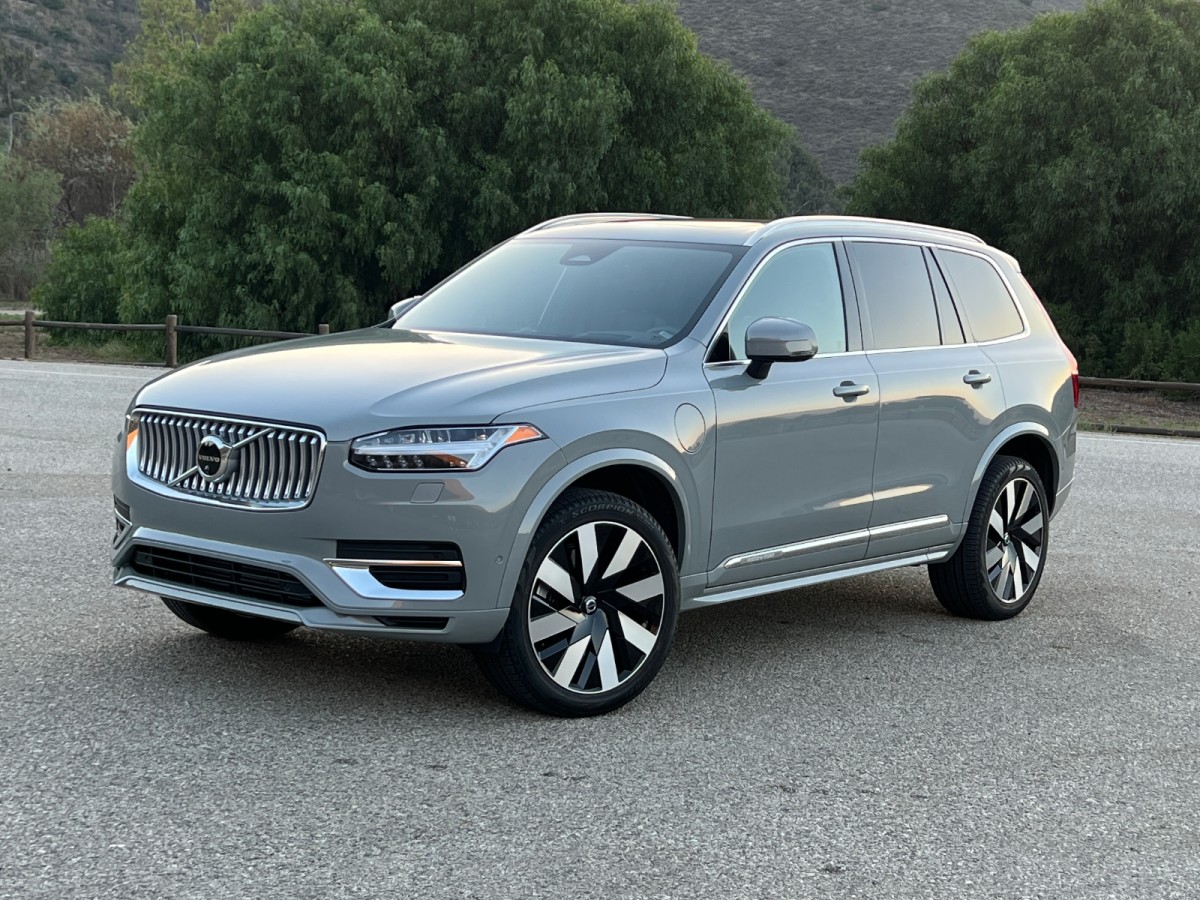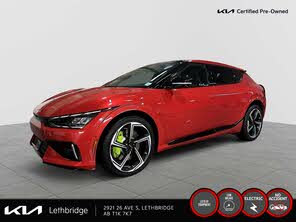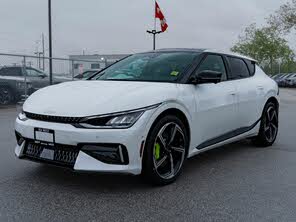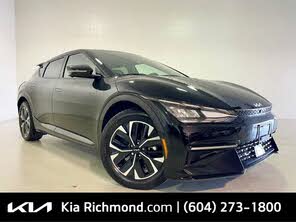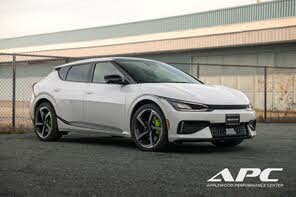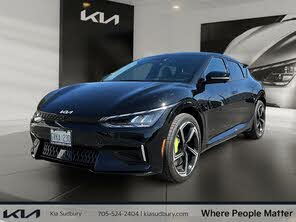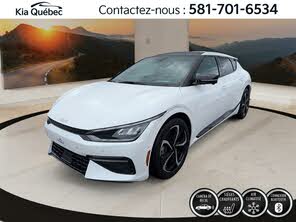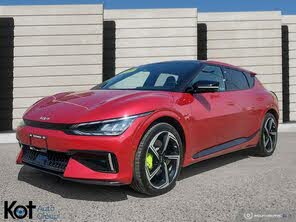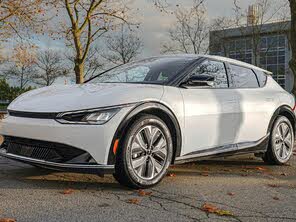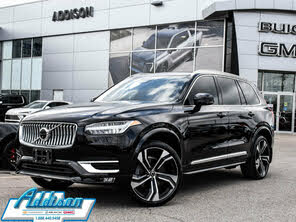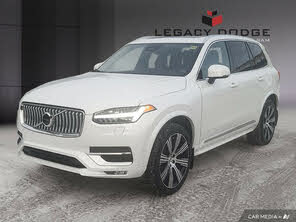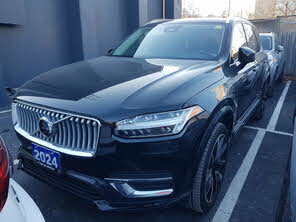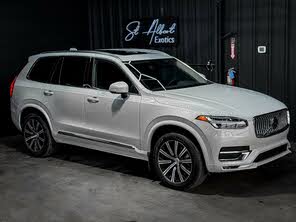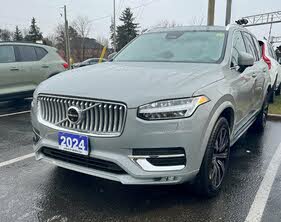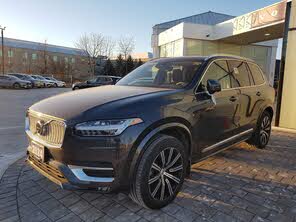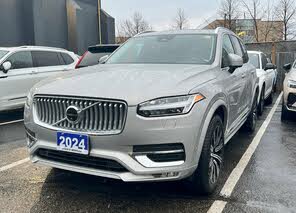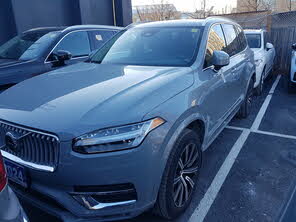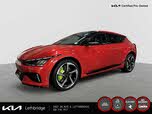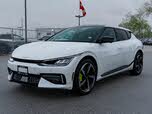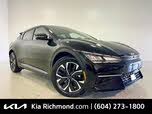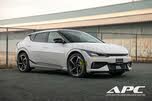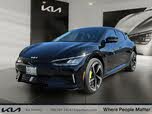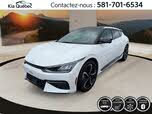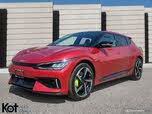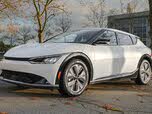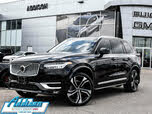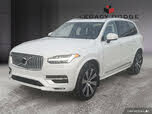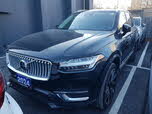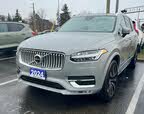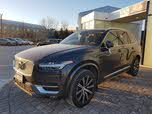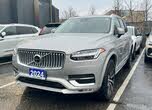2023 Kia EV6 vs 2024 Volvo XC90
Overview | |
MSRP$42,600 | MSRP$56,600 |
Average price$51,512 | Average price$69,379 |
Listings53 | Listings38 |
Ratings & Reviews | |
User Reviews | User Reviews |
Expert reviews | Expert reviews7.2 out of 10 |
Pros
| |
2023 Kia EV6 Reviews Summary | |
2024 Volvo XC90 Reviews SummaryWhen the current-generation XC90 went on sale nearly a decade ago, it marked the Swedish automaker’s pivot from its boxy and boring past to a future defined by design, quality, and technology. Volvo used the XC90’s blueprint throughout its lineup of cars, SUVs, and wagons, building a bridge to its electrified future. Has it overstayed its welcome? Perhaps, and it carries over this year without changes. But having spent a week driving the 2024 XC90 Recharge T8 plug-in hybrid, it remains an appealing choice in the luxury SUV segment. Verdict: Beautifully styled, inside and out, and offering a range of powertrains that includes a plug-in hybrid variant, the 2024 Volvo XC90 stands out in its field. However, it commands a steep price tag, and its safety tech isn’t as innovative as what you’ll find in some rival SUVs. | |
No video found | No video found |
Popular Features & Specs | |
Engine167 hp Electric | Engine2.0L 247 hp I4 |
Drive TrainRWD | Drive TrainAWD |
Seating Capacity5 | Seating Capacity7 |
Horsepower | Horsepower247 hp @ 5500 rpm |
EV Battery Capacity58 kWh | EV Battery Capacity |
MPG City127 | MPG City22 |
MPG Highway100 | MPG Highway27 |
Battery Charge Time (120V)51 hours | Battery Charge Time (120V) |
Battery Charge Time (240V)6.3 hours | Battery Charge Time (240V) |
Engine | |
Engine Name167 hp Electric | Engine Name2.0L 247 hp I4 |
Torque | Torque258 lb-ft @ 1500 rpm |
Horsepower | Horsepower247 hp @ 5500 rpm |
Battery Charge Time (120V)51 hours | Battery Charge Time (120V) |
Battery Charge Time (240V)6.3 hours | Battery Charge Time (240V) |
DrivetrainRWD | DrivetrainAWD |
Fuel Economy | |
EV Battery Capacity58 kWh | EV Battery Capacity |
MPG City127 | MPG City22 |
MPG Highway100 | MPG Highway27 |
Interior | |
Seating Capacity5 | Seating Capacity7 |
Key Features | |
Navigation SystemStandard | Navigation SystemStandard |
Sunroof/Moonroof | Sunroof/MoonroofStandard |
Safety | |
Front Crash Overall5 | Front Crash Overall5 |
Side Crash Overall5 | Side Crash Overall5 |
Dimensions & Capacity | |
Cargo Space24.4 cu ft | Cargo Space15.8 cu ft |
Curb Weight3984 lbs | Curb Weight4589 lbs |
Height60.8 in | Height69.9 in |
Length184.3 in | Length195.0 in |
Width74.0 in | Width84.3 in |
Wheelbase114.2 in | Wheelbase117.5 in |
Maximum Payload1020 lbs | Maximum Payload1210 lbs |
Number of doors4 | Number of doors4 |
Maximum Towing Capacity | Maximum Towing Capacity5000 lbs |
Overview | ||
MSRP | $42,600 | $56,600 |
Average price | $51,512 | $69,379 |
Listings | ||
Ratings & Reviews | ||
User reviews | ||
Expert reviews | 7.2 out of 10Read full review | |
Pros & cons | Pros
| |
Summary | When the current-generation XC90 went on sale nearly a decade ago, it marked the Swedish automaker’s pivot from its boxy and boring past to a future defined by design, quality, and technology. Volvo used the XC90’s blueprint throughout its lineup of cars, SUVs, and wagons, building a bridge to its electrified future. Has it overstayed its welcome? Perhaps, and it carries over this year without changes. But having spent a week driving the 2024 XC90 Recharge T8 plug-in hybrid, it remains an appealing choice in the luxury SUV segment. Verdict: Beautifully styled, inside and out, and offering a range of powertrains that includes a plug-in hybrid variant, the 2024 Volvo XC90 stands out in its field. However, it commands a steep price tag, and its safety tech isn’t as innovative as what you’ll find in some rival SUVs. | |
Video | No video found | No video found |
Popular Features & Specs | ||
Engine | 167 hp Electric | 2.0L 247 hp I4 |
Drive Train | RWD | AWD |
Seating Capacity | 5 | 7 |
Horsepower | 247 hp @ 5500 rpm | |
EV Battery Capacity | 58 kWh | |
MPG City | 127 | 22 |
MPG Highway | 100 | 27 |
Battery Charge Time (120V) | 51 hours | |
Battery Charge Time (240V) | 6.3 hours | |
Engine | ||
Engine Name | 167 hp Electric | 2.0L 247 hp I4 |
Torque | 258 lb-ft @ 1500 rpm | |
Horsepower | 247 hp @ 5500 rpm | |
Battery Charge Time (120V) | 51 hours | |
Battery Charge Time (240V) | 6.3 hours | |
Drivetrain | RWD | AWD |
Fuel Economy | ||
EV Battery Capacity | 58 kWh | |
MPG City | 127 | 22 |
MPG Highway | 100 | 27 |
Interior | ||
Seating Capacity | 5 | 7 |
Key Features | ||
Navigation System | Standard | Standard |
Sunroof/Moonroof | Standard | |
Safety | ||
Front Crash Overall | 5 | 5 |
Side Crash Overall | 5 | 5 |
Dimensions & Capacity | ||
Cargo Space | 24.4 cu ft | 15.8 cu ft |
Curb Weight | 3984 lbs | 4589 lbs |
Height | 60.8 in | 69.9 in |
Length | 184.3 in | 195.0 in |
Width | 74.0 in | 84.3 in |
Wheelbase | 114.2 in | 117.5 in |
Maximum Payload | 1020 lbs | 1210 lbs |
Number of doors | 4 | 4 |
Maximum Towing Capacity | 5000 lbs | |

By: CarGurus + AI
At CarGurus, our team of experienced automotive writers remain at the heart of our content operation, conducting hands-on car tests and writing insightful guides that are backed by years of industry experience. To complement this, we are harnessing AI to make our content offering more diverse and more helpful to shoppers than ever. To achieve this, our AI systems are based exclusively on CarGurus content, ratings and data, so that what we produce is both unique to CarGurus, and uniquely helpful to car shoppers.

